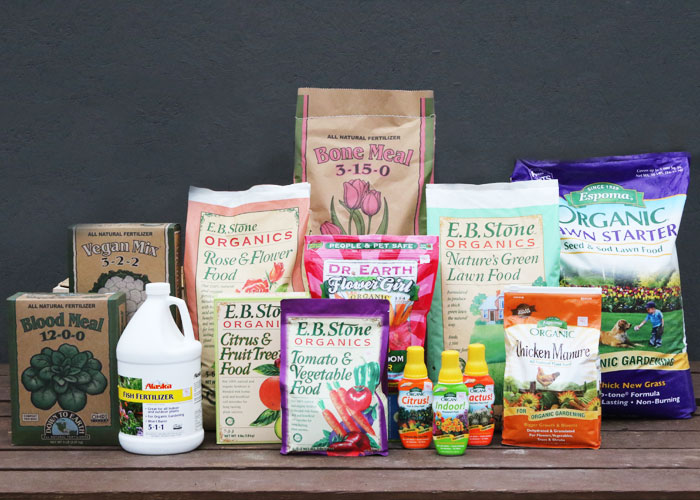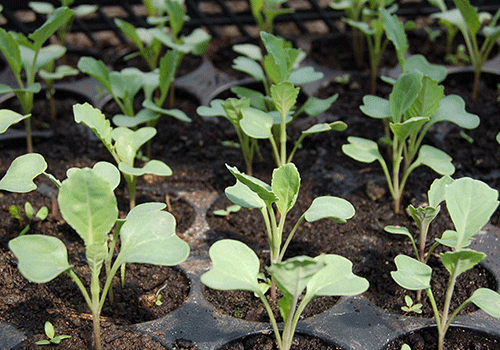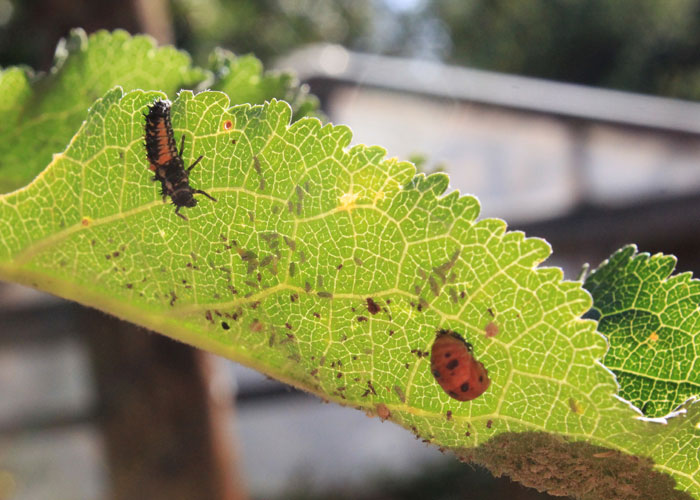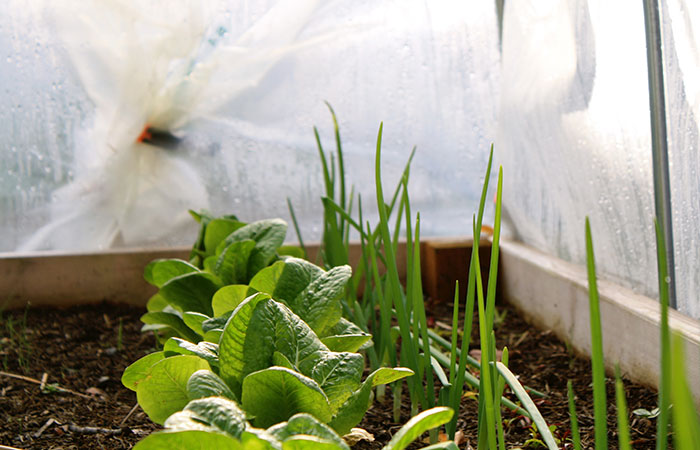Pest Prevention: Stop Problems Before They Start
Natural pest prevention is an excellent way to set your garden up for success. If you want to reap the many benefits of ecological pest management, now is the time to start!
The best time to deal with pests is long before you notice them. Let’s face it: by the time you can see large clusters of aphids, or your leaves are riddled with leaf miner trails, the pesky bugs have already moved in for the long haul. That’s one reason gardeners can succumb to the frustrating, expensive, and environmentally harmful cycle of ever-increasing chemical use called a “pesticide treadmill.”
If you haven't already, try preventing pest problems before they start, using natural, Earth-friendly methods. Here are four simple, concrete steps you can take now for proactive pest prevention.
1. Amend Your Soil with
Compost, Fertilizer & Lime

Healthy plants can ward off and outgrow pest invasions. A few aphids are no problem for a thriving, healthy plant. On the other hand, when pest populations explode and cause serious damage, the real issue can often be traced back to the basics: sunlight, water, and especially soil. With proper plant care, healthy soil leads to healthy plants!
To promote healthy plants that can outgrow pest problems, gardeners should add moderate helpings of compost, organic fertilizer, and lime to their gardens and lawns at least once a year. Early spring is a great time. Compost improves the structure of your soil, fertilizer feeds your plants, and lime helps ensure that the soil isn’t so acidic as to undo all your good work.
The exact amendments depend on your plants, soil, and gardening style. We're always happy to help guide you here at Sky.
2. Plant at the Right Time,
in the Right Place

Creating ideal conditions is another important part of setting plants up for success. Both timing and placement are key. Often, chronic pest problems come up when plants are consistently struggling in unsuitable conditions, or when they fail to recover from transplant shock.
For most perennials, including trees and shrubs, cool weather is best for transplanting. Hold off on planting sensitive vegetables and annuals until you’re sure the nights are warm enough to keep them happy and healthy. We all get excited about the first sunny spring days, but planting too early can lead to a season full of trouble. When in doubt, plant a bit later. A planting chart specific to our region can help quite a bit.
When choosing plants, keep their needs for water and sunlight in mind. Remember that “part sun” means at least six hours of direct sunlight per summer day. Fortunately for those of us with shady yards, there are many wonderful annuals and perennials that thrive in those conditions, though we may need to find creative solutions to grow most fruits, vegetables, and herbs.
3. Inoculate with Predators,
& Invite Them to Stay

Bug-eating predators are the best ecological pest management system around, and they’ll work for aphids! Under the right conditions, generations of predatory insects will continue to gobble pests in your garden for many years to come.
Sky Nursery carries two kinds of friendly predators to kick-start your natural pest control program. Ladybugs are a great choice for aphids and other above-ground pests, while predatory nematodes will go after cutworms, wireworms, and other pests that lurk below your soil.
Want proof that predators can get the job done? Check out this video of a lacewing larvae devouring an aphid:
Multitudes of predatory insects naturally live in our region, including syrphid flies, ground beetles, and lacewings, among others. The key to inviting your purchased predators to stay and enticing additional help is to create year-round habitat. That includes food for them to eat, so don't worry about small numbers of prey insects. Integrate evergreen hiding places, summer nectar flowers, and shallow water sources into your landscape so your friendly predators have everything they need.
4. Use Floating Row Cover
to Break Pest Cycles

Floating row cover, also called remay, is one of the easiest and most reliable ways to prevent pest problems early in the spring. Remay is simply lightweight polyester fabric that can be laid right on top of seedlings or freshly sown seed beds. Just use stakes or rocks around the edges to keep it from blowing away. Since row cover lets light and water though, it can simply be left in place until your plants are well-established and ready to fend for themselves.
Remay does several things to help your young vegetables and annuals. It provides a little insulation, holds in moisture, and best of all, physically blocks out pests.
Many pests begin their lives in the spring by laying eggs near vulnerable seedlings. These well-fed baby insects then begin the cycle all over again. During our long growing seasons, some pests can go through multiple generations in a single year, multiplying every time. By using a physical barrier early on, you can prevent these pest problems before they even start.
We're here to help!
Sky Nursery has everything you need to prevent pest problems in a sustainable way, and get your garden off to a healthy start. Our experienced staff can also advise you about pest prevention strategies for your unique situation and goals. Feel free to give us a call or come on in with any questions. We'd love to hear from you!
